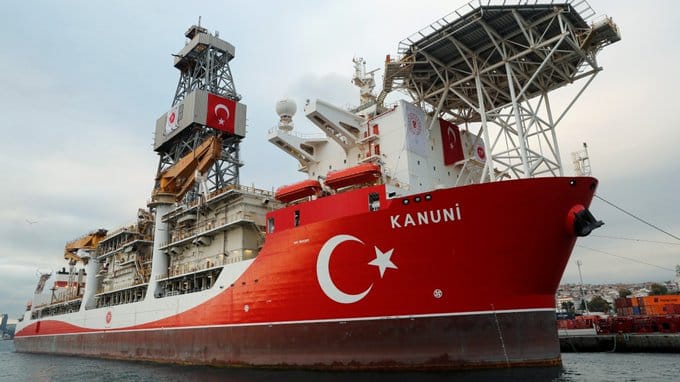Turkey-Somalia Agreements: Strategic and Economic Implications for the Horn of Africa
Turkey and Somalia sign key security and energy agreements, reshaping the geopolitical landscape of the Horn of Africa.
In a significant move set to reshape the geopolitical landscape of the Horn of Africa, Turkey and Somalia have signed comprehensive security and energy agreements. The Turkish navy is set to train and equip its Somali counterpart over the next decade, and Ankara will also send an exploration vessel off the coast of Somalia to prospect for oil and gas.
Strategic and Economic Ties Deepen
Turkey has been a steadfast ally of Somalia since 2011, providing over $1 billion in humanitarian aid and spearheading development projects in healthcare, education, and infrastructure. Turkish companies manage Mogadishu's sea port and airport, and Turkish-led military training programs have been pivotal in stabilizing Somalia.
In addition to humanitarian aid, Turkey's economic and military assistance has been transformative. The Turkish-led training programs have produced over 15,000 Somali soldiers, including 5,000 commandos. This has played a crucial role in bringing a degree of stability to a country that has long been synonymous with chaos and conflict.
Mutually Beneficial Partnership
For Turkey, the security pact offers a strategic foothold in the Red Sea and the Horn of Africa. This move is part of a broader strategy to secure supply chains and create strategic depth in the maritime domain. It also opens new avenues for Turkey's booming defense industry, with Somalia expected to procure Turkish naval platforms and other military hardware.
From Somalia's perspective, the agreement promises improved maritime security and economic prospects. The country’s coastline, the longest in Africa, harbors significant marine life and potential hydrocarbon resources. Strengthening Somalia's navy is crucial for protecting these assets and combating illegal fishing and piracy, which currently cost the Somali economy at least $300 million annually.
Energy Prospects
Turkey will send an exploration vessel to Somali waters later this year to search for oil and gas, as part of a hydrocarbon cooperation deal between the two countries. Geosismic studies indicate that Somalia's untapped reserves could be equivalent to those of oil-rich Kazakhstan, estimated at 30 billion barrels. With Turkish companies expected to join the exploration efforts, Somalia stands to benefit from a significant boost in its energy sector.
Regional Implications
The Turkey-Somalia agreements come at a critical time, following Ethiopia and Somaliland's memorandum of understanding that grants Ethiopia a 50-year lease on a strip of Somaliland’s coast. This move, which could potentially recognize Somaliland's independence, threatens to strain Ethiopian-Turkish relations and destabilize the region. Ethiopia, a landlocked nation, seeks access to the sea, and the Somaliland deal provides a strategic and economic lifeline. However, it complicates the already volatile regional dynamics, particularly as Somaliland is internationally recognized as part of Somalia.
Turkey and the UAE, key players in the Horn of Africa, have conflicting interests. The UAE, with significant investments in Somaliland and Somalia, supports the Ethiopia-Somaliland deal. The UAE manages key Somali ports in Berbera (Somaliland) and Bosaso (Somalia proper) and has economic and political leverage in the region. Conversely, Turkey's involvement in Somalia counters UAE influence, highlighting the ongoing rivalry between the two nations.
Turkey will have full authority in the Somali EEZ. Research, drilling, operation and distribution will also be done by Türkiye.
— South Asian Journal (@sajournal1) March 11, 2024
🚩 Turkey; "With the Somalia Agreement, Somalia will receive 30 percent of the revenue from the exclusive economic zone, known for its rich marine… pic.twitter.com/iospaCXAG3
Security and Economic Considerations
The security pact and the energy deal partially compensate Turkish naval activities through revenue generated from marine activities. According to the terms of the deal, Turkey will receive a 30% share of marine revenues in return for bolstering Somalia's maritime security capabilities. This includes training, joint operations, information sharing, and naval acquisitions from Turkey.
Furthermore, Somalia’s exclusive economic zone (EEZ) is significant not only for its resources but also for its strategic location. The EEZ harbors numerous submarine cables that connect the Persian Gulf with East Africa and the Red Sea. Control over these waters would grant significant bargaining power across the Indian Ocean.
Conclusion
The Turkey-Somalia agreements signify a strategic shift in regional alliances and economic partnerships. As Turkey cements its presence in the Horn of Africa, Somalia stands to benefit from enhanced security and economic development. However, these agreements also introduce new dynamics in the already complex geopolitical landscape, with potential implications for regional stability and international relations. The full impact of these agreements will unfold in the coming years, but they undoubtedly mark a new chapter in Turkey-Somalia relations and the broader Horn of Africa region.







